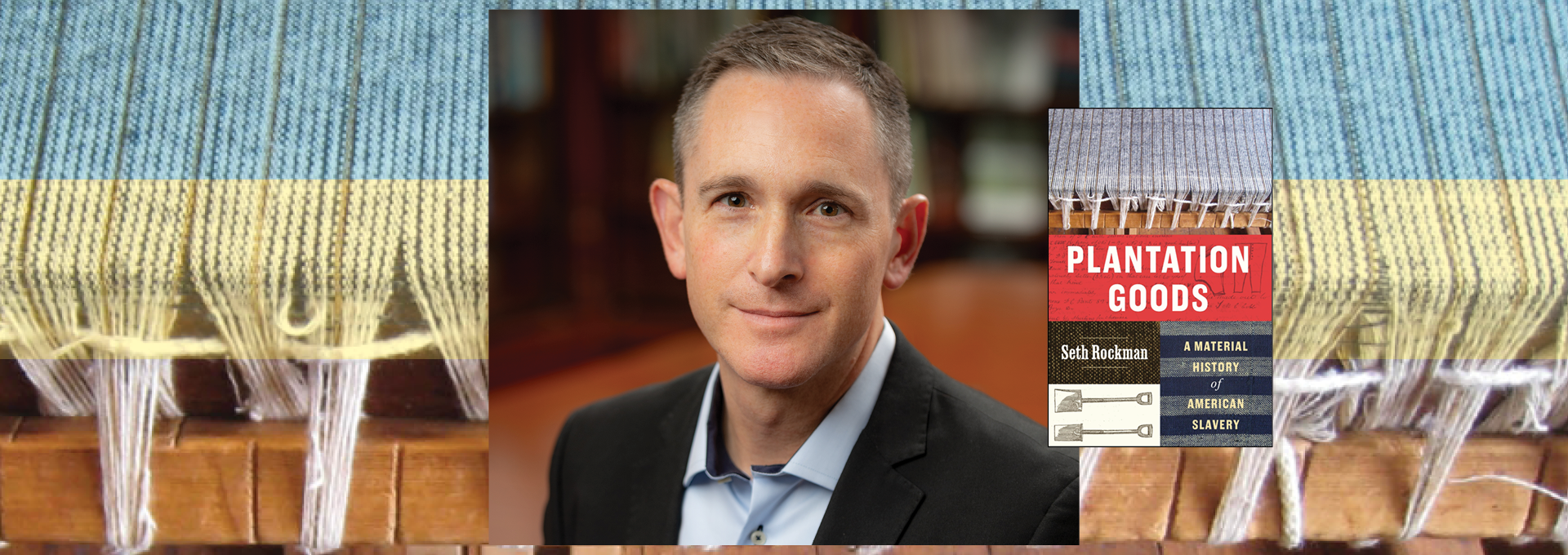
Seth Rockman: A Material History of American Slavery
How interdependent were the Northern industrial economy and Southern slave labor in pre-Civil War America?
Historian and Brown University history professor Seth Rockman says the traditional way of thinking about the United States in the early 19th century—that of a nation with an industrializing North and agricultural South—overlooks the economic ties that held together the nation before the Civil War. He says it misses slavery’s long reach into small New England communities, and it fails to recognize the role of Northern manufacturing in shaping the terrain of human bondage in the South.
Rockman, in his new book Plantation Goods, looks at the shirts, hats, hoes, shovels, shoes, axes, and whips made in the North for use in the South. By following the stories of material objects, such as shoes made by Massachusetts farm women that found their way to the feet of a Mississippi slave, Rockman says it was a national economy organized by slavery—a slavery that outsourced the production of its supplies to the North, and a North that outsourced its slavery to the South.
Examining producers and consumers linked in economic and moral relationships across great geographic and political distances, Rockman explores how people in the 19th century thought about complicity with slavery while showing how slavery structured life nationwide and established a modern world of entrepreneurship and exploitation.
A Humanities Member-led Forum program. Forums at the Club are organized and run by volunteer programmers who are members of The Commonwealth Club, and they cover a diverse range of topics. Learn more about our Forums.
Photo by Peter Goldberg.
The Commonwealth Club of California
110 The Embarcadero
Toni Rembe Rock Auditorium
San Francisco, CA 94105
United States

Seth Rockman
Associate Professor of History, Brown University; Author, Plantation Goods: A Material History of American Slavery

In Conversation with Alan Taylor
Author; Thomas Jefferson Foundation Chair (emeritus), University of Virginia

Introduction by George Hammond
Author, Conversations With Socrates


